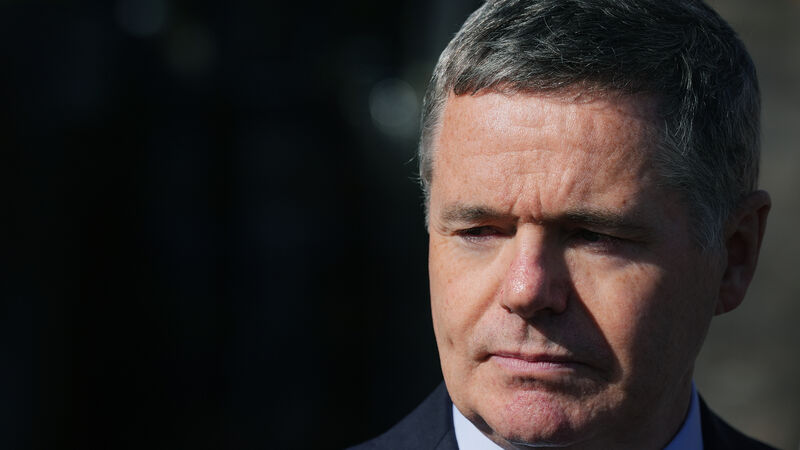Government records €1.4bn surplus ahead of budget

Finance minister Paschal Donohoe will deliver the budget on Tuesday.
Heading into the budget next week, the Government has recorded a €1.4bn surplus for the first nine months of the year, but proceeds resulting from the Apple tax case masks a deterioration in the underlying surplus.
According to the latest exchequer returns for September, the Government’s surplus of the year so far has fallen from the €5bn recorded during the same period in 2024. When receipts from the Apple tax last September are excluded, an underlying exchequer deficit of €1.9bn was recorded — a deterioration of €6.9bn year-on-year.
Gross revenue for the year up to the end of September stood at €91.2bn, an increase of €8.1bn. Of this, tax receipts accounted for €73bn, which is €4.8bn ahead of the same period in 2024.
Last month, the exchequer took in €2.5bn in income tax receipts — down €100m year-on-year — resulting in €25.8bn being taken in throughout the year so far, up €1bn.
Corporation tax receipts of €1.8bn were collected in September, up by €300m. In total, corporation tax accounted for €20bn in receipts this year, up by € 2.2bn.
However, this drops to €18.2bn when the Apple tax proceeds are excluded.
September was a Vat-due month, resulting in receipts of €3.6bn — up by €200m. Cumulative receipts of €18.8bn have been collected so far this year, €900m ahead of last year.
Stamp duty, capital gains tax, and excise duties all added €1.2bn, €600m, and €500m to the exchequer last month.
Motor tax receipts as of the end of September amounted to €731m, and are flat on the same period in 2024. Customs receipts of €451m are ahead of the same period last year by €29m.
Non-tax revenue and capital resources for the year stood at €4.8bn, up by €2.5bn year-on-year. Appropriations-in-aid — which is money generated by other Government departments — of €13.4bn brought total other revenue to €18.2bn.
Total expenditure for the year so far stood at €89.8bn. Of this, gross voted expenditure stood at €77.5bn, which was €5.4bn ahead of the same period last year.
Non-voted expenditure accounted for €12.3bn, up by €6.3bn.
This reflects the transfer of €6.1bn to the Future Ireland Fund and the Infrastructure, Climate and Nature Fund this year.
Exchequer debt service costs this year have totalled €2.6bn, down by €300m.
These are the last set of exchequer results before the budget next week, in which the Government has already promised a spending package of €9.4bn.
Of this, €1.5bn is to be spent on tax measures, with the remaining €7.9bn going to new measures, which will include current and capital spending.
The additional spending measures break down to €5.9bn more in current spending, while an extra €2bn will go towards capital spending.
The Government has been repeatedly advised by the Central Bank of Ireland, and other economic bodies, to reign in its spending.
Earlier this week it was reported that the tax package in the budget would not include changes to personal income tax, which has been done in recent years. Instead, other tax measures such as the 9% Vat rate for hospitality is expected to take up a significant chunk of the tax package.













